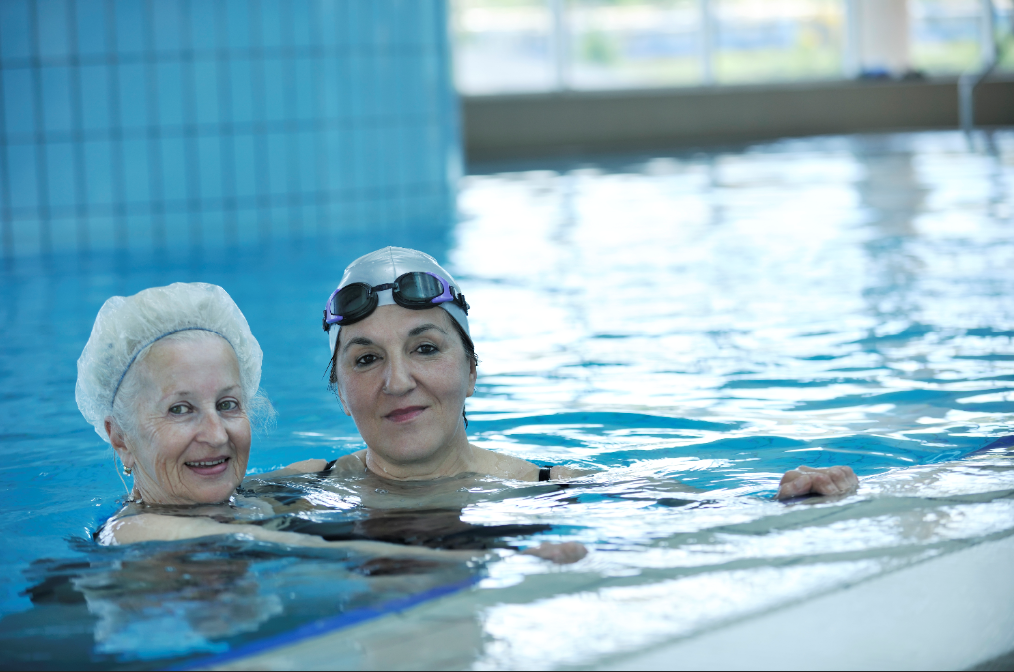Whether you are at risk for or currently have heart disease, engaging in regular physical activity can be safe and help promote a strong heart and cardiovascular system. Exercise lowers resting heart rate and blood pressure and helps the heart pump blood more effectively. Especially important is aerobic activity, which gets the heart pumping and burns calories.

Benefits of Exercise
For an individual at risk for or with heart disease, at least 150 minutes per week of moderate aerobic activity (walking, swimming, light jogging, or biking) can have many health benefits, including:
- Weight-loss
- Improved blood lipid profiles (lower total and LDL-cholesterol and triglycerides)
- Strong heart function and cardiovascular system
- Lowered blood pressure
- Ability to manage heart disease through diet and exercise instead of solely through medication
- Stress reduction
Boost Your Energy
Many people feel more energetic when starting and maintaining an exercise plan. Since tiredness can be common in those with heart disease, feeling more energic during everyday activities is an especially rewarding benefit resulting from becoming more physically active!
How Much Physical Activity?
To receive the greatest benefit from exercise, it is important to be physically active at least 3-4 times per week. Each session should include at least 30 minutes of moderate intensity activity, for example, taking a brisk walk, going on a bike ride, or swimming laps at the pool. These sessions can also be broken up into shorter 10-minute sessions, three times a day.
This level and intensity of exercise may not be appropriate for everyone. It is important to meet with a healthcare professional for specific guidance in choosing an exercise program. Your doctor can discuss how much exercise you need, what type of activities to include or avoid, and when you should take your medications. An exercise stress test may also be necessary before starting an exercise program.
Tips for a Physical Activity Plan
- Walking is a great way to begin your physical activity plan. It allows you to ease into your exercise routine, requires little equipment, and does not place added stress on joints.
- Everyday activities such as using the stairs, gardening, or taking a brisk walk during lunch all count as physical activity which can add up to long-term positive changes.
- It is important to stretch and warm up for 3-5 minutes before exercising. Be sure to allow time for a brief cool down after finishing an exercise.
- Try to incorporate resistance and strength exercises into your workouts. Training with weights and resistance bands adds muscle mass that can help you perform certain exercises.
- Drink plenty of water before, during, and after exercise. Take a break if needed.
- Have fun while you exercise and switch up your activities if you begin to get bored or tired of a particular one. It can also be fun exercising in a group class or with a friend.
Be Active but Don’t Overdo It!
Though health complications from exercise are rare for those with heart disease, it is important to recognize the warning signs that you may be working your heart too hard. Symptoms might include feeling dizzy or light-headed, chest pain, irregular heartbeat, shortness of breath, or nausea. If you experience any of these warning signs, stop what you are doing immediately and rest. If your symptoms do not disappear, call your doctor. If chest pain develops, dial 9-1-1 immediately.
For more information on heart disease, check out Heart Health: Managing Heart Disease Through Diet: https://extension.colostate.edu/topic-areas/nutrition-food-safety-health/heart-health-managing-heart-disease-through-diet-9-384/.
Did You Know?
Research shows that people with heart disease (or with risk factors such as high blood pressure, diabetes, or high cholesterol) who engage in regular physical activity have a 20-25% lower death rate. Ask your doctor when you can begin an exercise program, especially if you have recently had a heart attack, heart surgery, are experiencing chest pain/pressure, or have diabetes.


